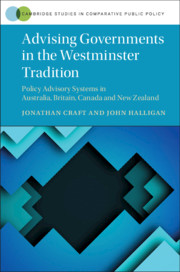Workgroup relationships are characterized by interdependence and intensity and can produce powerful norms that shape how work is performed. This study focuses on the effect of workgroup accord, defined as positive exchange, cooperation, and consensus among workgroup members, on change-oriented behavior in public service organizations. Change-oriented behavior denotes discretionary corrective or creative initiatives on the part of employees, and workgroup accord is hypothesized to increase change-oriented behavior both directly and indirectly via organizational commitment. The theoretical model is operationalized using survey data collected from employees of the Australian Public Service. The results of regression analysis are consistent with the hypothesis that workgroup accord positively influences organizational commitment, which in turn facilitates change-oriented behavior. However, a negative direct effect renders the total effect of workgroup accord on change-oriented behavior non-significant. Additionally, the findings suggest that innovation climate and employee performance agreement efficacy each positively moderate the negative relationship between workgroup accord and change-oriented behavior.

